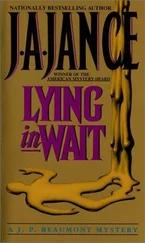If she told the actual truth, she would be obliged to say something to the effect that she was the injured woman’s sole visitor because there was a turf war brewing between the Bureau of Alcohol, Tobacco, Firearms and Explosives and the Yavapai County Sheriff’s Department. Family members reading those words after the fact weren’t likely to find much comfort or solace in them. Finally, after several long moments of consideration, Ali took up her pen and continued:
I witnessed the fire the other night. It’s a miracle anyone survived. Sheriff Maxwell asked me to come here to handle any Phoenix-area media concerns regarding the unidentified patient or the hospital.
When she finished, Ali read through what she had written. It wasn’t much, but it was close enough to the truth to pass muster.
If a grieving family member read it later, she hoped they might find comfort in knowing Sheriff Maxwell had seen fit to dispatch a representative from his office, someone who was there in person. And even though Ali was in the burn unit in an official capacity, she was also a legitimate visitor.
Closing the book, Ali returned it to the nurses’ station. Then she went back to her chair and opened her laptop. While she waited for her computer to boot up, a text message came in on her cell phone from her friend and homegrown cyber-security guru, Bartholomew Simpson. Cursed with sharing his name with a cartoon character and teased mercilessly about it by his classmates, B. Simpson had abandoned his given name by the time he reached junior high. He had also dropped out of high school and thrown himself into the world of computer science. He had put his natural genius and self-taught computer skills to work in Seattle ’s computer-gaming world, where he had made a name for himself as well as a fortune.
In the aftermath of a tough divorce, B., like Ali, had returned to his hometown roots in Sedona, where he started a computer-security company called High Noon Enterprises. Months after Ali had signed on to become one of his clients, he had come to her rescue when she had been the subject of a cyber-stalking event. Her computer had been hacked by a serial killer who used an Internet dating service to target and harass unsuspecting victims. B. Simpson had played an integral part in taking the bad guy down.
In the months since then, High Noon Enterprises had become wildly successful. B. had, in fact, spent the last three weeks in Washington, D.C., doing something he couldn’t discuss, with someone at Homeland Security whose name was classified and couldn’t be mentioned.
While B. had been gone, he had sent the occasional text message, several of them hinting that when he got back, he would like to look into the possibility of their being more than friends. That was another issue entirely. Ali had kept her responses breezy and noncommittal. Admittedly, she was attracted to the man. Why wouldn’t she be? He was smart and had plenty of money and a disposition that reminded her of a gentle giant (he towered over her at six foot five). Ali liked him, her parents adored him, and Chris thought B. was slick. As far as Ali was concerned, however, the difficulty lay in the difference in their ages. She couldn’t quite get beyond the fact that B. Simpson was closer in age to Christopher and Athena than he was to Ali.
That disparity seemed to have no effect at all on B.’s apparent interest in her. She scanned through his text message:
Bak n Sed. Bfast @ SLC. Prnts say u r in PHX. Kno u r workn 4 Sheriff Max, PHX in June! R U NUTS?
Smiling, Ali texted him back:
Nuts R U!
The elevator door swished open. Ali looked up from her cell phone in time to see a stocky young man step into the hallway and stride purposefully toward the nurses’ station.
“I’m here about the burn victim from Camp Verde,” he announced.
Ali was suddenly all ears. Closing her phone, she turned her attention to what was happening at the nurses’ station.
“Are you a relative?” the charge nurse asked.
“No,” the man said impatiently, pulling out his wallet and displaying his identification. “My name is Caleb Moore, and I’m with the Camp Verde Fire Department. I’m the one who carried the victim out of the burning house.”
The nurse glanced at his ID. Ali more than half expected that the man would be given the bum’s rush. Before the nurse could do so, Caleb rushed on.
“I already know that you can’t give me any information about her condition. You probably can’t even confirm she’s here, not officially anyway, but I know this is where the helicopter brought her. I know that nun is here, too. You know, the one who takes care of dying patients. So I’d like to sign the logbook, please-the one Sister Anselm keeps. I want to let the woman and her family know that I was here and that I was thinking about them.”
If Ali was surprised that Caleb Moore knew of the existence of Sister Anselm’s logbook, the charge nurse was not. Without a word, she handed over the notebook.
While Ali watched curiously, Caleb Moore clutched the notebook to his chest and marched past her to a table in the far corner of the room. Tossing the notebook onto the table, he settled heavily into a chair, removed a pen from his shirt pocket, and began to write.
Oblivious to everyone else in the room, he hunched over the notebook with an air of painstaking concentration, like a student dealing with difficult questions on a final exam. He wrote slowly and carefully, as though the words he put on paper would be judged as much for penmanship as for content.
Had Caleb glanced up from his task, he might have seen Ali studying him. She realized then that she might have caught a glimpse of him the night before at the fire, but the scene had been chaotic, so she wasn’t sure. The man she had seen in full firefighting regalia had been hustled into an ambulance. Today, clad in ordinary jeans and a dark blue golf shirt rather than his firefighting garb, and with his crewcut brown hair, Lieutenant Moore looked perfectly ordinary, like a young neighbor who might stop by in the hope of borrowing a lawn mower or a rake.
Halfway down the page, he paused long enough to cough a horribly wracking cough. When he turned to cough into his armpit, Ali noticed the hospital identification bracelet he wore on his arm. Ali had assumed that the injured firefighter had suffered burns as well. Now she realized that his injuries were more likely related to smoke inhalation. He had been admitted and treated. Now, after being released, he had come straight to the burn unit.
Unwilling to interrupt his process, Ali waited until Caleb finished writing. Then she sat and watched while he read over what he had written. Only when he seemed satisfied with the result and started to return the notebook to the nurses’ station did Ali move to intercept him.
“Mr. Moore?” she asked. “Do you have a moment?”
He turned to face her as if noticing her presence for the first time. “Who the hell are you and what do you want?” he demanded. “How do you know who I am?”
Startled by his apparent anger, Ali held up her sheriff’s department ID. “I overheard you give your name to the nurse. I’m Ali Reynolds,” she explained. “I was at the scene of last night’s fire.”
He looked up from examining her ID with an expression of ill-concealed fury on his face.
“Media Relations?” he demanded. “I’m not interested in talking to someone from the media. Not at all!”
“I’m not a reporter,” Ali said quickly. “My job right now is to keep reporters away from everyone involved, including you, but I do want to offer my personal congratulations about what you did last night. Your efforts to save the woman were wonderful…”
He tossed the book onto the counter and then whirled to face Ali. “You think what I did was wonderful?” he demanded with a bitter snort. “Pardon the hell out of me if I beg to disagree. It would have been wonderful if we had gotten there sooner and I’d been able to carry her out of that burning building before the fire got to her instead of after the fact. Wonderful my ass!”
Читать дальше












